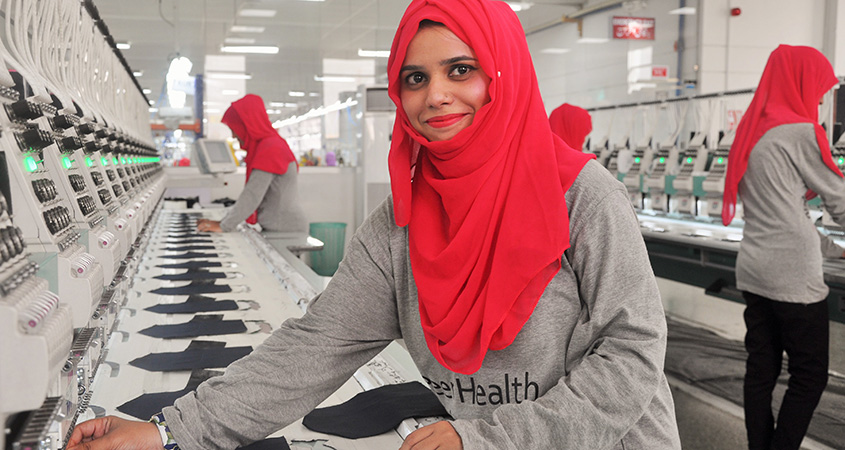A business case for investments in female hygiene
Women working in factories in developing countries often have low hygiene awareness and poor access to sanitation, leading to serious health issues. But, as this example from Pakistan shows, educating women about their rights and choices is not only good for factory workers’ health but also the bottom line.
Female factory workers’ health, in addition to their well-being, has a direct impact on the productivity and stability of manufacturing operations often plagued by narrow profit margins, volatile customer demand, and high worker turnover and absenteeism. In this context, workers who are loyal, healthy and educated represent an invaluable resource, making investments in female workers’ health likely to deliver significant returns. But what are the best investments to make, and what are the benefits from a business point of view?
HERproject, now referred to as HERhealth, is run by BSR (Business for Social Responsibility), a global nonprofit business network and consultancy dedicated to sustainability. The aim is to empower women working in global supply chains through workplace-based programs. HERhealth focuses on improving health knowledge, behavior and access to health services and personal hygiene products. The program has been successful in creating an enabling environment while also highlighting the business case for prioritizing women’s health at work.
The number of women who reported taking the maximum number of allowable days off was reduced by 46%.
At one factory in Karachi, Pakistan, female factory workers were missing up to three days of work a month during their menstrual cycles. Women reported monthly pain, infections and embarrassment due to a lack of knowledge about proper hygiene and limited access to safe products. By educating workers in feminine hygiene and related issues, and persuading factory management to provide subsidized sanitary napkins, significant results were achieved.
Women’s increased use of sanitary napkins, with 33% now using them, combined with their increased knowledge of hygienic practices during menstruation reduced health complaints. Rashes and pain, often due to reproductive-tract infections, were reportedly reduced by 11% and 18% respectively.
The health awareness and behavior changes in the factory have also had positive business impacts. Because of changes specific to menstrual health, women reported a 25% reduction in poor concentration in work, 28% less absenteeism related to menstruation, and 33% less difficulty in meeting production targets. Overall, reported absenteeism was 11% lower, with a 24% reduction in the mean number of days absent. The number of women who reported taking the maximum number of allowable days off was reduced by 46%. An initial ROI analysis confirmed that women in the factory worked an average of 2.5 more hours per month during the project period, representing an additional 615 days of work per year. These business impacts translated into a USD 4 return for every dollar invested in the program.
less absenteeism
hours worked per month
return for every dollar invested

